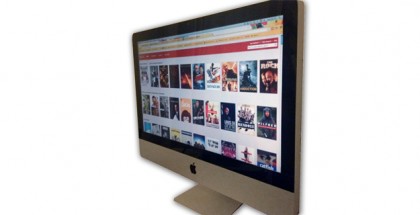Soaring subscription services drive digital entertainment sales up to 60% of UK market
David Farnor | On 17, Mar 2014
Digital sales accounted for 60 per cent of the UK home entertainment market in 2013, thanks to soaring demand for subscription services such as Netflix and NOW.
These “access services” include audio platforms, such as Spotify, and in-app purchases from games, as well as video sites, such as Amazon Prime Instant Video (formerly LOVEFiLM) and Netlix. The latter two video on-demand firms saw revenue surge 120 per cent, according to the Entertainment Retailers Association (ERA) Yearbook, as viewers increasingly turn to subscription services as a method of watching programmes and films.
Exclusives such as House of Cards and It’s Always Sunny in Philadelphia on Netflix UK and Vikings and Alpha House on Amazon Prime Instant Video have helped to attract people to subscription services, which now account for 26 per cent of entertainment revenue in the UK. Ownership models of payment remain the most popular overall, though, accounting for 74 per cent of sales – a sign that pay-per-view VOD also attracts a large volume of viewers.
On the high street, physical media sales fell 8 per cent year-on-year, even as the number of outlets selling music and video climbed to a record high thanks to independent retailers and a thriving market for vinyl records.
Online sales, on the other hand, climbed to account for £5.3 billion of sales last year, or 60 per cent of total revenue – a clear majority of the market and a confirmation, in case there was any doubt left, that the Internet is the way the country’s home entertainment is headed.
ERA Director General Kim Bayley said: “This is stark evidence of the revolution in entertainment consumption being driven by entertainment retailers. The fact that 60p in the entertainment pound is now spent online and 26p in the pound is for access to content rather than ownership is a testament to the huge investment and technological ingenuity of retailers in providing consumers with new ways to enjoy the music, video and games they love.
“The transformation of the entertainment market is often misrepresented either as some kind of force of nature beyond human control or as a far-sighted initiative of record and video and games companies. It is neither.
“The entertainment revolution has been driven by new and existing retailers taking huge gambles and investing in technology and new delivery mechanisms. The striking thing, however, is that 10 years after the launch of iTunes and then the rise of mobile entertainment, physical formats still account for a clear majority of entertainment market sales.”

















